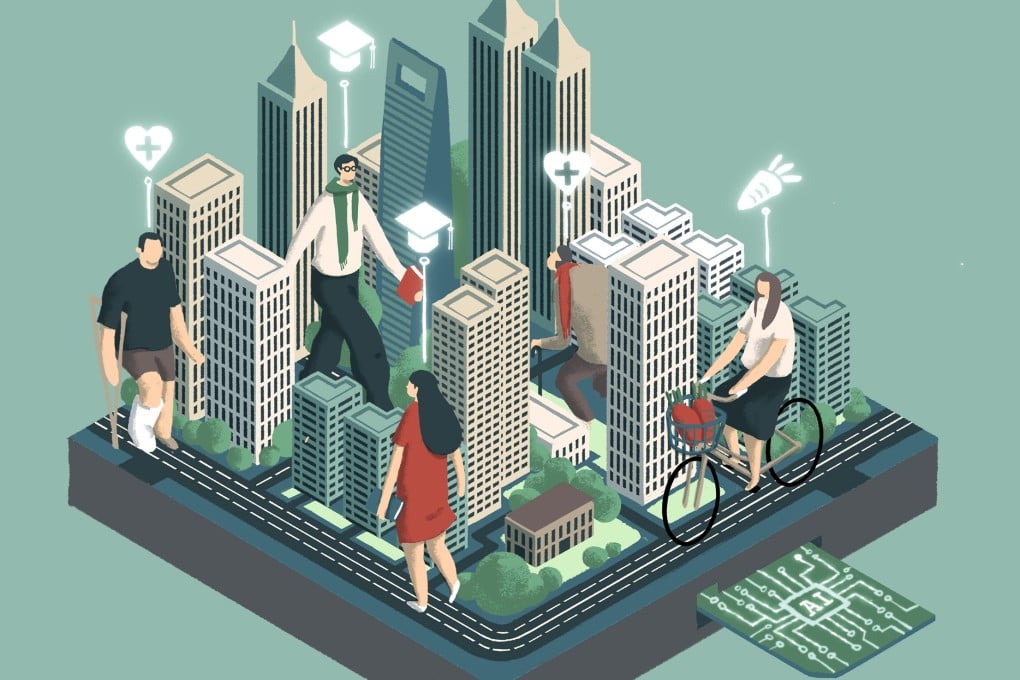China dreams of becoming an AI utopia, pushing beyond surveillance and into education and health care
- This is the fourth instalment in a four-part series examining the brewing US-China war over the development and deployment of artificial intelligence technology
- China has had success with AI and surveillance, but when it comes to social issues such as education, health care and agriculture, there is still a ways to go

For China, the advent of artificial intelligence is meant to be the silver bullet that unlocks further economic growth and helps solve deep-rooted social problems, such as the uneven distribution of resources in education and health care.
The targets are ambitious – by 2025 China wants wide-scale adoption of AI in manufacturing, health care, education, agriculture and national defence, and is seeking to usurp the US as global leader in AI by 2030.
By some measures, China is already halfway there. Its population of 1.4 billion and high levels of urban density have allowed companies and the government to harvest huge treasure troves of data. This has helped spur development of some of the world's most valuable AI start-ups, such as Beijing-based SenseTime and Megvii.
The two companies specialise in computer vision and facial recognition technology, with their valuations growing rapidly on the back of rising demand for improved public security, crime detection and smart city infrastructure.
“The purpose of AI ultimately is to capture human knowledge so that it can be reused,” said Andy Chun, adjunct professor at City University of Hong Kong and convenor of the AI Specialist Group of the Hong Kong Computer Society. “Everyone's working on the same thing, which is to spread out resources and make them more accessible.”
However, when it comes to social issues such as education, health care and agriculture, China has some way to go – even though the application of AI in these areas is less controversial than it is in public surveillance.
